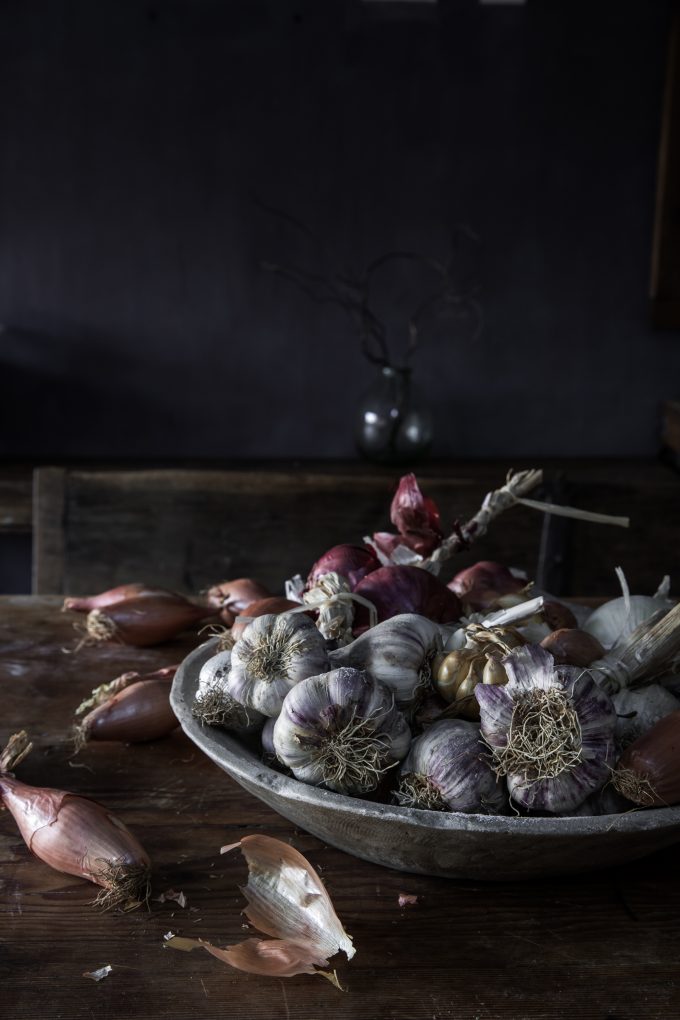 Inulin: a plant source of nourishment
Inulin: a plant source of nourishment
Increasing our fibre intake is the first of our 7 core principles here at the Sourdough Club. Inulin is a great place to start: a prebiotic dietary fibre found in the roots or root stalks of approximately 36,000 species of plants, including wild garlic, garlic, onions, chicory, leeks and artichokes. It is actually a sugar (and so is considered a carbohydrate) that the plants store for energy. It’s also found in smaller amounts in wheat and rye.
The following properties of Inulin help us understand why it is such a good source of fibre.
- Solubility: Inulin is known as a ‘soluble’ dietary fibre, meaning it is soluble in water. When we consume a soluble fibre, it absorbs water to form a gel-like substance inside the digestive system. Soluble fibre helps soften stools so they can slide through the GI tract more easily. It also increases transit time, which helps you feel fuller for longer.
- Fermentability: We cannot break down inulin ourselves – our gut microbes break it down for us. So inulin moves through the upper gastrointestinal (GI) tract unscathed, ready to be fermented by the gut microbiota of the lower digestive tract (the colon).
Inulin and the gut microbiome
Due to this prebiotic effect in the colon, human studies find inulin consumption increases the probiotic bacteria Bifidobacterium, even at low levels. These probiotic bacteria feed on, ferment and convert fibres such as inulin into short-chain fatty acids (SCFA) such as butyrate, which is well known for supporting gut cell function, maintaining gut lining and dampening inflammation.
Inulin and digestibility: be warned!
Inulin is so effective at feeding our gut microbes that it makes them produce a lot of gas. This means that consuming inulin-rich foods such as Jerusalem artichokes can make us fart wildly – which explains why they are sometimes known as fartichokes! If this gas accumulates in the digestive tract, it can cause discomfort. Therefore, it is advised we consume these foods in moderation.
Those who suffer with irritable bowel syndrome (IBS) may be even more sensitive to these types of dietary fibres. Inulin belongs to the class of dietary fibre known as fructans, or fructo-oligosaccharides (FOS). These fibres are classed as one of the FODMAP foods. Those who suffer from IBS are often prescribed a low-FODMAP diet, meaning they will need to avoid certain foods, such as those containing inulin, for a period of time (although it may well be beneficial to then gradually reintroduce them into the diet in small amounts).
Nourishment in moderation
Being a soluble, fermentable fibre, it makes sense that we find evidence to suggest inulin not only prevents, but also alleviates symptoms of travellers’ diarrhoea. However, inulin is also found to be beneficial for those with constipation.
These classic symptoms are most apparent in those who experience gastrointestinal disease such as Crohn’s and inflammatory bowel disease (IBD). Scientific findings suggest that inulin, together with other fructo-oligosaccharides, can reduce inflammation associated with these conditions.
Yet that is not all. There is evidence to suggest that inulin has further health benefits, including preventing bone loss as we age. This is because it aids the absorption of calcium, leading to increased bone-mineral density.
Given these benefits, it may be worthwhile considering including inulin-rich foods in your bakes. You can find suitable recipes on the Club website, such as our Sourdough Cheese & Onion Pan Loaf, or the Red Onion & Garlic Relish, which is a delicious accompaniment to a sourdough slice and some cheese.

